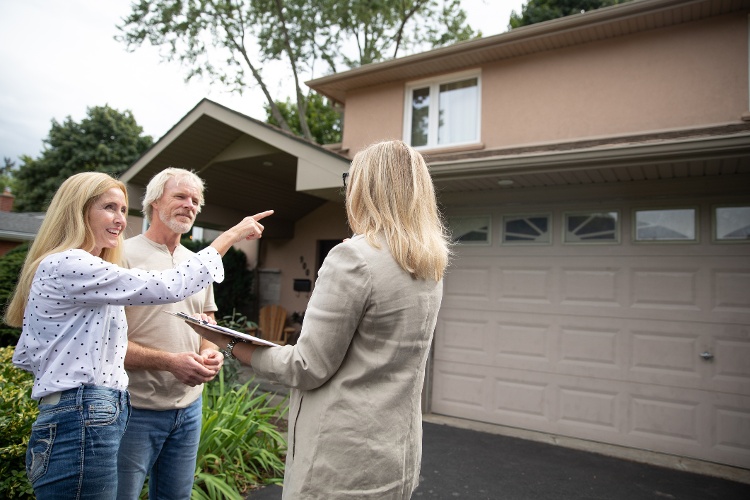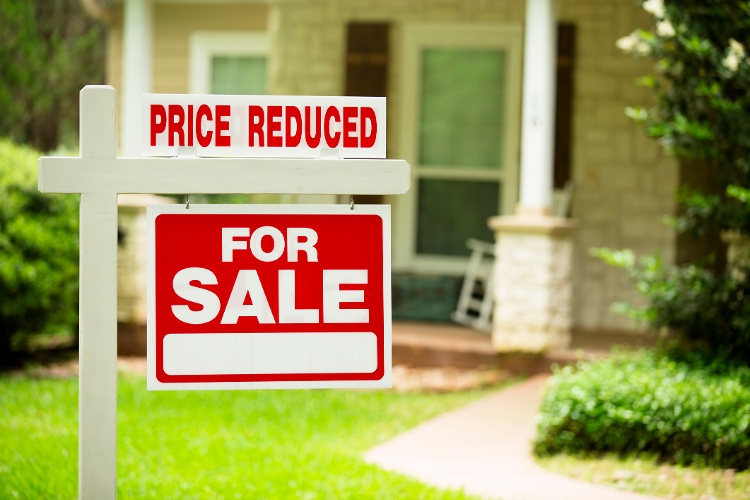Just because some real estate is cheap doesn’t mean it’s a better deal. Or does it?
Although home prices have been rising in almost every part of the country, there are still markets where real estate is cheap, creating the opportunity for potentially above-market returns.
In this article, we’ll talk about the potential benefits and drawbacks of buying cheap real estate, and common strategies investors use to buy cheap real estate to help increase their passive cash flow and boost the performance of their rental property portfolio.

Benefits of Buying Cheap Real Estate
Let’s begin by discussing the top potential benefits of cheap real estate, and why some buyers may find that inexpensive real estate is an ideal niche for them.
1. Higher cash flow and gross yield
Cheap real estate with lower rents may generate higher cash flows and larger gross yields than more expensive property. That’s because while the property may cost less, rents do not decrease nearly as much, especially if the area is growing and affordable housing is in short supply.
If that sounds too good to be true, take a quick look at the Roofstock marketplace.
At the time of this writing, there are more than 100 properties with an estimated gross yield of 11% or higher, which is the annual income generated by the asset before any expenses, divided by the purchase price. Most of these higher cash flow properties have two things in common:
- Homes prices are less than $100,000
- Rents are less than $1,000 per month
Buying cheap real estate in the right location can also lead to greater long-term appreciation. That’s why they say that money is made in real estate when the property is purchased, not when it’s sold.
A recent article from USA Today illustrates this point perfectly, reporting that for many homeowners the least expensive houses have risen sharply in price. Based on data from Moody’s Analytics, the Census Bureau, CoreLogic, and Trulia, from 2012 to February 2019:
- Bottom third of homes with the lowest prices appreciated an average of 8.03% a year
- Mid-level homes appreciated by an average of 6.39% a year
- Most expensive homes appreciated by an average of 5.01% a year
Let’s say you have $60,000 to invest in real estate, maybe with your self-directed IRA. As a prudent real estate investor, you want to make a down payment of at least 25% to keep debt service low.
With the amount of capital you have to invest in rental real estate, you could:
- Buy one $240,000 property with a down payment of $60,000
- Buy three $80,000 properties, each with a down payment of $20,000
There are several potential advantages to buying more than one rental property with the same amount of money, including geographically diversifying your investments, generating more yield, and the potential for greater appreciation compared to a single home that is more expensive.
4. Reduce risk with lower mortgage paymentsBuying cheap real estate can also help to reduce your risk by keeping monthly mortgage payments low. Sometimes real estate investments don’t perform exactly as planned. For example, sometimes it can take longer than expected to find a qualified tenant to rent to.
If you invested in the $240,000 expensive property, your monthly mortgage payment (P&I) would be about $770 per month, even at today’s low interest rates. Three months down the road, if the property were still vacant, you would have to cover more than $2,300 in mortgage payments out of pocket instead of using the tenant’s rent to pay your expenses.
On the other hand, the monthly mortgage payment on the cheap $80,000 house would be just $255 per month, an expense that a real estate investor could easily pay if need be.
Of course, it’s possible that all three cheap rental homes could go vacant at the same time. By investing remotely in affordable real estate in different parts of the country, some investors find that they can diversify and reduce the odds of that happening.

Why Cheap Real Estate Could Be the Wrong Choice
Despite these advantages, buying cheap real estate isn’t the right choice for every investor.
One reason cheap real estate could be the wrong choice is that tenants may not be able to pay the rent on time, leading to inconsistent cash flow. You can manage this risk with conservative financing and by hiring a qualified property manager with experience in cheap real estate, but it is still something to consider.
Sometimes the reason real estate is being sold at a discount because it is distressed. This means that the house is a fixer-upper and may need major repairs before it can be rented, because the current owner didn’t have the money to keep the property in good condition. Cheap real estate that needs updating can still be a good deal, just be sure to consult with a trusted contractor to understand the true after repair value (ARV) of the house.
Buying in a bad location is another reason why cheap houses could be a bad choice. Even if the house is structurally sound and ready to rent, if the neighborhood is in decline it could be hard to find a good renter, making your annual cash flow lower than expected.
Investing in cheap real estate in the wrong location can also lead to low or negative appreciation, which makes it more difficult to plan your exit strategy and sell at a profit.

6 Strategies Investors Use for Buying Cheap Real Estate Better
Any type of investment, including bargain real estate, comes with a certain amount of potential risk. The key to buying cheap real estate is to identify and quantify risk as much as possible and protect yourself from the downside while maximizing the upside potential.
1. Location selectionReal estate located in the “path of progress” is usually cheaper than an “A area” that’s already on the radar screen of every other investor. Neighborhoods near the edge of those that are hot today could see market values increase significantly five or ten years down the road.
2. Crunch the numbersIt’s tempting to take a pass on a property simply because it doesn’t look nice from the outside or because the house is located in an undesirable part of town. However, oftentimes the lease attractive rental properties can yield the biggest returns.
Analyze key financial criteria such as cap rate, cash-on-cash return, and potential ROI. If the numbers make sense, it never hurts to make an offer.
3. Always inspectA big mistake some investors make when buying cheap real estate is to skimp on the property inspections, simply because the house is cheap. They rationalize this by thinking if they don’t move fast another investor will.
The fact is that in the real estate business it’s far too easy to buy someone else’s problem. Always conduct thorough due diligence, and don’t be afraid to renegotiate the deal with the seller if your home inspector discovers there are hidden repairs that need to be done.
4. InsuranceTitle insurance and liability insurance are two must-haves when you buy cheap real estate (or any other type of rental real estate, for that matter).
Title insurance protects you from unknown property defects such as prior mistakes made in legal documents, unpaid judgment and liens, and previous forgeries or fraud.
Liability insurance for rental property helps protect you against lawsuits from a tenant or a guest if someone is injured or personal property is stolen.
5. Tenant screeningThoroughly screening tenants can help avoid major problems and expenses. Always have a system in place to vet potential renters, including performing thorough background checks and rental history reports.
Also, be sure to have the right expectations about the type of tenant you’re renting to. Cheap real estate may be located in areas where incomes are low or applicants have dings on their credit score. Tenants like these can end up being the best and may be less likely to move provided they are treated fairly and have a nice place to live.
6. Property managementHiring a local property manager is another must-have for passive real estate investors, especially if you are investing in real estate remotely. When you interview property managers, focus on those that have proven experience renting and managing cheap houses.
That’s because the challenges with tenants renting cheap real estate can be different, and a good manager who understands cheap properties will know exactly what to do to protect and increase the value of your investment.
Final Thoughts on This Topic
Cheap real estate can be easy to find, especially for remote real estate investors. However, a low-priced house doesn’t always make the best investment. While there are some big benefits to buying bargain real estate, including the possibility of higher gross yields and geographic portfolio diversification, there are also some drawbacks as well.
Crunching the numbers, buying in the right location, and hiring a qualified local property management company are three ways to help turn cheap real estate into a profitable investment that will generate solid cash flow year after year.









